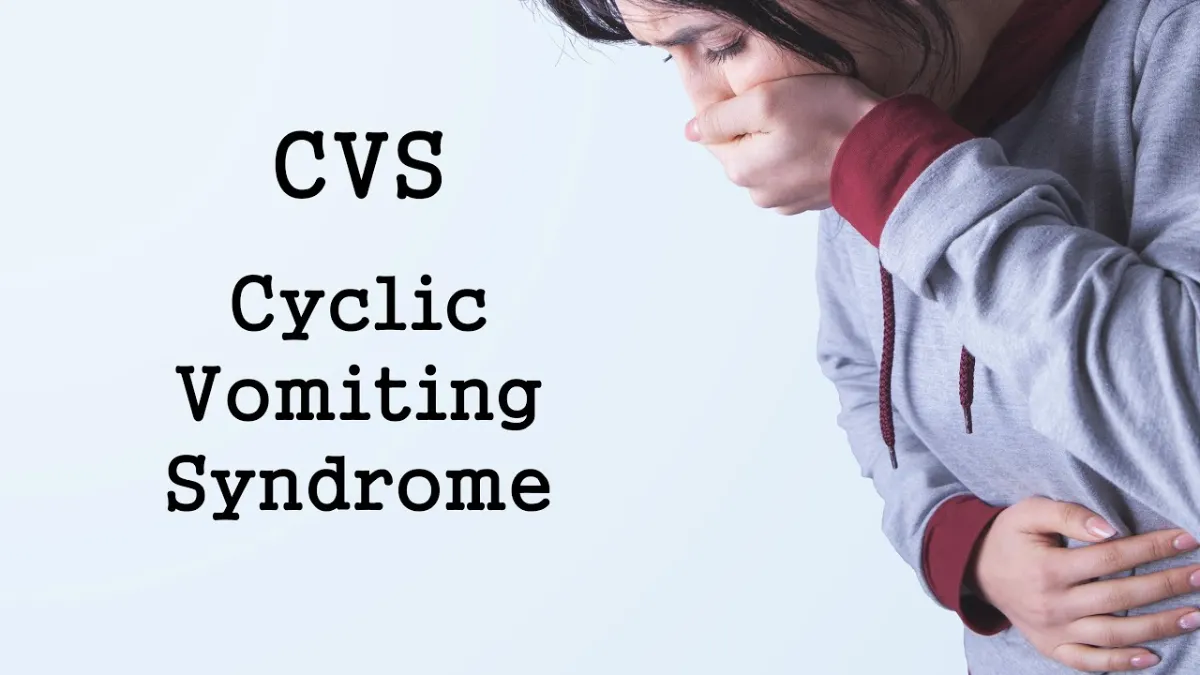What is Cyclic Vomiting Syndrome?
Cyclic Vomiting Syndrome (CVS) is a stomach condition that causes repeated episodes of:
- Severe nausea
- Violent vomiting
- Extreme tiredness
These episodes:
- Happen suddenly
- Can last hours or days
- Go away completely between attacks
Other names for CVS:
- Abdominal migraine
- Periodic vomiting
Who Gets CVS?
CVS can affect:
- Children (most common between ages 3-7)
- Adults
- More women than men
- About 3 in 100,000 people
CVS Symptoms
Main symptoms during an episode:
- Constant vomiting (every 5-10 minutes)
- Severe nausea that doesn’t go away
- Dry heaving (trying to vomit when stomach is empty)
Other possible symptoms:
- Pale skin
- Stomach pain
- Diarrhea
- Dizziness
- Headache
- Sensitivity to light/sound
- Extra saliva/drooling
What Causes CVS?
Doctors don’t know the exact cause, but possible reasons include:
1. Family History
- Often runs in families
- Many patients have relatives with migraines
2. Migraine Connection
- 80% of kids with CVS get migraines later
- May be a “stomach migraine”
3. Brain-Gut Problems
- Nerves connecting brain and stomach don’t work right
4. Stress Hormones
- Body makes too much stress chemical (CRF)
5. Energy Problems
- Cells can’t make enough energy when stressed
CVS Triggers (What Starts Episodes)
Common triggers include:
Stress or anxiety
Physical exhaustion
Too much excitement
Lack of sleep
Certain foods (chocolate, cheese, MSG)
Alcohol
️ Hot or cold weather
Allergies
Periods (in women)
⏳ Skipping meals
Possible Complications
Repeated vomiting can cause:
Severe dehydration
Torn esophagus (Mallory-Weiss tears)
Tooth damage from stomach acid
Depression/anxiety
Hospital stays for IV fluids
How Doctors Diagnose CVS
There’s no single test. Doctors will:
- Ask about your vomiting patterns
- Do tests to rule out other conditions:
- Blood tests
- Urine tests
- Stomach scans
- Sometimes endoscopy
Treatment Options
While there’s no cure, these can help:
Medicines
Anti-nausea drugs
Migraine medicines
️ Acid reducers
⚡ Seizure medications (for some people)
During an Episode
️ Rest in dark, quiet room
Sip small amounts of:
- Water
- Electrolyte drinks (Pedialyte)
- Ginger tea
Go to hospital if:
- Can’t keep liquids down
- Vomiting lasts over 24 hours
Prevention Tips
✔️ Avoid known triggers
Get enough sleep
️ Eat regular small meals
♀️ Manage stress with:
- Meditation
- Deep breathing
- Counseling
When to See a Doctor
Call your doctor if you have:
Frequent vomiting episodes
Fever with vomiting
Signs of dehydration:
- Dark urine
- Dizziness
- Dry mouth
Go to ER for:
- Vomiting blood
- Severe belly pain
- Can’t wake up properly
Living With CVS
- Many children outgrow it (may get migraines instead)
- Adults can manage symptoms with treatment
- Keeping a symptom diary helps identify triggers
Key Points to Remember
CVS causes sudden, repeated vomiting episodes
Episodes can be triggered by stress, foods, or tiredness
Treatment focuses on preventing episodes and managing symptoms
Most people live normal lives between episodes
If you think you have CVS, talk to a stomach doctor (gastroenterologist) about creating a management plan.

